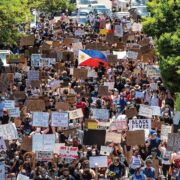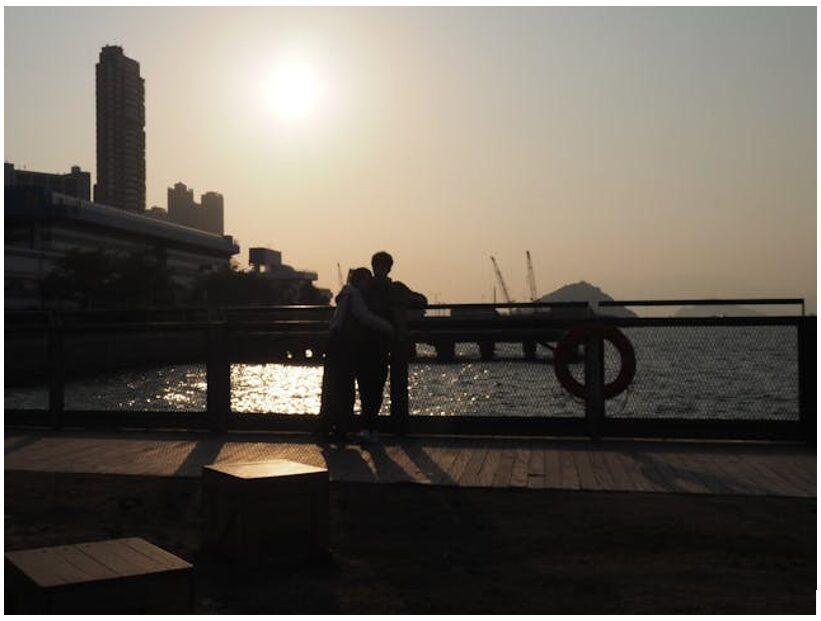
| File photo courtesy of @hazelsunday/Instagram
By Gregory A. Cendana
WE have arrived at another May, which many in Asian American and Pacific Islander communities know as our Heritage Month. It is yet another moment, for Filipino Americans also, that we cannot operate business as usual.
We’ve been navigating a global health crisis where Filipinos are on the frontlines and make up more than a quarter of migrant nurses in the United States. The Philippines and Thailand are seeing the highest ever daily cases since the pandemic started. Cambodia, India, Pakistan, South Korea, and Vietnam have delays and lack of access to vaccinations.
Our people are not exempt from racial and gun violence. From 16-year-old Earl Estrella in Seattle who was shot while answering his front door to 65-year-old Vilma Kari in New York who was brutally attacked on her way to church as a security guard looked on, these are only a few of the examples of the stories that have surfaced in light of the anti-Asian scapegoating during the pandemic.
In 2021 alone there were already 170 mass shootings which included one that targeted Asian women working in Atlanta massage parlors and a different one weeks later targeting Sikh employees at a FedEx location in Indianapolis.
White supremacy, cis-heteropatriarchy and capitalism are the problem. In other words, this ongoing violence has everything to do with race, gender, and class and it is clear there are disproportionate impacts based on immigration status, religion, sexual orientation and ability or disability.
This month is also Mental Health Awareness Month, so I would be remiss to not uplift the story of 30-year-old Angelo Quinto, a Navy veteran who died after an Antioch police officer knelt on his neck for more than 4 minutes as he was experiencing a mental breakdown.
If it sounds familiar, it is, as it was exactly how George Floyd was murdered almost a year ago by Minneapolis police. Police violence is a threat to Black lives and those in proximity to blackness every day and yes that also includes Filipinos and those in the broader Asian American community.
We should echo demands of Black organizers to defund police and reallocate the more than $193 billion dollars spent on policing all over the country back into healthcare inclusive of mental health services, employment, education, housing and survivor-centered and place-based community safety programs.
While mainstream media recently has given more coverage to anti-Asian violence and while there have been a record number of incidents reported, this violence is not new.
Historic examples include the Page Act of 1875, which specifically targeted Asian women, the Chinese Exclusion Act, Japanese American Internment, post-9/11 backlash on Muslim, Arab, and South Asian communities which led to heightened surveillance and the creation of Immigration and Customs Enforcement (ICE), and the disproportionate impact of Southeast Asians and Pacific Islanders in the school to prison to deportation pipeline. I cannot forget the attacks on Filipino farm workers during the Watsonville riots in 1930.
Learning this history is critical to a consciousness that understands the historic and ongoing violence our communities face, the ways in which our struggles and liberation is tied with other People of Color and how our collective wisdom and power is enough to make our most radical dreams a reality.
While people may know or are learning about the violence and trauma that our people have and continue to face, they do not always know about the resilience, love, and solidarity that got us through some horrendous moments in time and what I believe will get us through this moment we are in.
As we chart our path forward, let me be clear that hate crimes legislation, expansion of the carceral state and anything punitive is not the answer. Instead of turning towards policing, prisons and punishment, we should push for collective accountability, transformative justice and communities free of violence in all forms.
We must donate to and volunteer with grassroots organizations like Filipino Advocates for Justice, Pilipino Workers Center of Southern California, Alliance of Filipinos for Immigrant Rights and Empowerment (AFIRE) Chicago or the People’s Collective for Justice and Liberation.
We must build cross-racial solidarity with other Asian Americans and People of Color.
We must read Creative Interventions from Mimi Kim, We Do This ‘Til We Free Us by Mariame Kaba or Call Me, Not the Cops (which is also available in Tagalog) from 18 Million Rising. There’s also Abolition for the People produced by Kaepernick Publishing with editors like Dr. Connie Wun of AAPI Women Lead.
We must address anti-Blackness, misogyny, toxic masculinity, homophobia and transphobia in our families.
Another world is not only possible, but also within reach and will require all of us to do our part. I call on my fellow Filipino Americans to take action to dismantle white supremacy, practice transformative justice and make abolition — a vision, process and way of being in relationship with one another — a reality. After all, our Filipino heritage is about resiliency, challenging the status quo and radical joy. Diba? (Right?)
Look forward to being with you in the streets, on the Zooms, at the polls and on the frontlines, together.
* * *
The opinions, beliefs and viewpoints expressed by the author do not necessarily reflect the opinions, beliefs and viewpoints of the Asian Journal, its management, editorial board and staff.
* * *
Gregory A. Cendana is the President and co-founder of Can’t Stop! Won’t Stop! Consulting and co-founder of the People’s Collective for Justice and Liberation. He was the first openly gay and youngest ever Executive Director of the Asian Pacific American Labor Alliance and first Filipino American chair of the National Council of Asian Pacific Americans.







